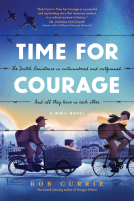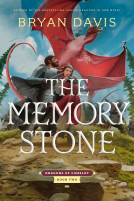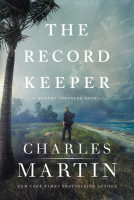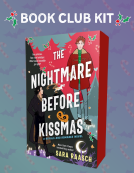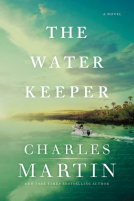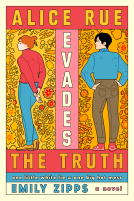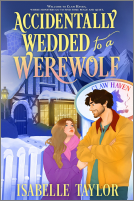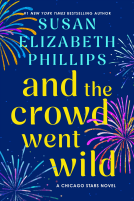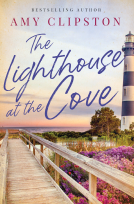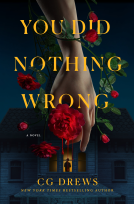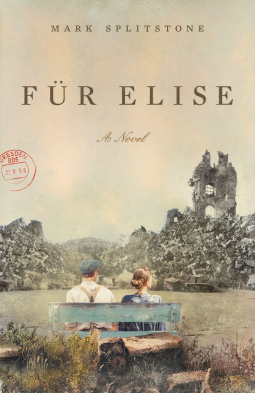
Für Elise
by Mark Splitstone
This title was previously available on NetGalley and is now archived.
Send NetGalley books directly to your Kindle or Kindle app
1
To read on a Kindle or Kindle app, please add kindle@netgalley.com as an approved email address to receive files in your Amazon account. Click here for step-by-step instructions.
2
Also find your Kindle email address within your Amazon account, and enter it here.
Pub Date May 20 2025 | Archive Date May 19 2025
Girl Friday Productions | Amalgam Books
Talking about this book? Use #FurElise #NetGalley. More hashtag tips!
Description
He waited half his life for a homecoming, only to discover his home no longer existed.
. . . But perhaps he can create a new one.
In 1956, more than a decade after the end of World War II, Hans Becker is finally released from a Soviet POW camp and returns to Germany. The reunion is disheartening—his beloved Dresden is largely blackened rubble, and his feelings of disorientation and melancholy hinder his attempt to revive the life—and love—he left behind.
Elise, the once delicate teenager whose memory Hans carried in his heart, has, through unspeakable trauma, transformed into a strong, independent woman skeptical of love. Yet just as she and Hans can spot traces of splendor in the ruins and oppression of Iron Curtain–era Dresden, they each can see flashes of what attracted them to their long-ago sweetheart. But they—and their world—have changed so much. Are they willing to risk everything to seek a new beginning?
A Note From the Publisher
Thank you!
Please leave your review on NetGalley and Goodreads: https://www.goodreads.com/book/show/228212744-fur-elise?ac=1&from_search=true&qid=RuQaXvZ0my&rank=1
Thank you!
Marketing Plan
NetGalley campaign
Editorial reviews
Ebook discount service
NetGalley email blast
NetGalley campaign
Editorial reviews
Ebook discount service
NetGalley email blast
Available Editions
| ISBN | 9798218565770 |
| PRICE | |
| PAGES | 344 |
Available on NetGalley
Average rating from 39 members
Featured Reviews
 Sharon A, Reviewer
Sharon A, Reviewer
I really enjoyed Fur Elise. I’ve read a lot of historical fiction, but this one is different in a couple of ways. First, it tells the story of WWII from the perspective of German characters, rather than the typical Allied “good guys.” Second, it tells the story of a German POW who was held in Russia for 13 years. I had no idea that that happened, and always appreciate learning things I didn’t know through fiction. I also discovered more about what life was like in Communist East Germany after the war; again, something you don’t typically run into in popular historical fiction books.
The first part of the story captures the feeling of young love in a beautiful way, against the backdrop of Hitler and the beginnings of WW II. The second, darker, section of the book focuses on what happens when our hero, Hans, returns from his incarceration. In both instances, Dresden takes center stage, with great descriptions of the city. Through flashbacks, there are glimpses as to what life was like in Dresden during and after the bombing, as well as what it was like in the Russian POW camp. We get to know the flawed and traumatized yet ultimately human characters in a way that has stuck with me long after I finished reading.
Fur Elise is a book that is well-researched and has some of everything – it’s a love story, a war story, a tragedy, and a thriller, with some unexpected twists as well as moments of subtle humor. Ultimately, it’s a story of hope. It’s a quick read, and I found it hard to put down. Highly recommend.
 Reviewer 1701398
Reviewer 1701398
I enjoyed this book and highly recommend it. It's premised on the historical fact (which we learn in the first chapter) that the Soviet Union held on to some of their German POWs until the mid-1950s. It's sort of a take on Rip Van Winkle (which is referred to in the text), with Hans, the main character, being released from a POW camp in 1956 and effectively waking up in a world he no longer recognizes. I thought this was a clever idea for a novel.
The first section of the book takes place at the beginning of World War II. We meet Hans and Elise, a young Dresden couple attempting to begin and maintain a romance as Germany descends into genocide and total war. As this section moves along, there's a sense of impending doom, since the reader knows what's going to happen to Hans, Dresden, and Germany. This section ends when Hans leaves Dresden to fight in the war.
The second, longer section of the book takes place when Hans returns to a world he barely recognizes. Neither Hans nor Elise (nor the reader) knows what happened to the other while they were apart, and the underlying tension in this section is the result of these secrets gradually being revealed and their relationship slowly being rekindled. The book concludes with an emotional chapter set in 2005, where we learn the fate of all the characters.
I liked learning about life in East Germany during the Cold War, especially since novels with this setting are usually about spies rather than ordinary people. I also thought the descriptions of Dresden before and after its destruction were compelling. There have obviously been other novels set in Dresden during the war, but I never thought about what the city was like ten years later. A really enjoyable read.
 Reviewer 1707692
Reviewer 1707692
I cannot stop thinking about this book. I wasn’t sure if I was going to like the book at first, because I was afraid it was going to be the familiar “from opposite sides of the river” trope and it was hard for me to buy the fact they were together for less than a year before he became a POW. But! Oh my, Part II. I don’t want to say anything else, because of spoilers. It was heartbreaking for those that went to war and for those left behind. The author is great at analogies and metaphors - I see you Wolff is a sheep.
Surprisingly I didn’t look up the author while I was reading it, but was shocked the author was male. I’m not sure why. I’m here for it.
I’d give it 4.8 stars.
This beautiful book although seemingly well researched is almost as if it should have been listed as Young Adult. It is difficult for me to review this one as it was mainly a love story with sprinklings of history, without really delving too deeply into any of them. A lovely story, nonetheless, however I recommend “Fur Elise” for a younger group of readers.
Thank you to NetGalley to for the gift of reading this book
A touching story of a POW from WWII. When he finally comes home in 1956, he finds everything different. His memories are different. So heartbreaking. A must read.
 Lottie C, Reviewer
Lottie C, Reviewer
4.5⭐️
[a copy of this book was provided to me by the publisher from netgalley. thank you!]
thoroughly enjoyed the character development & writing style of this historical fiction novel about a returning German POW from the Soviet Union. it was interesting to read about this perspective in historical fiction. highly recommend.
 Jessie H, Educator
Jessie H, Educator
This book was a 3.5 for me. The characters and storyline held a lot of appeal. It felt like it had the makings of an epic and it just fell short. There are these huge events: the bombing of Dresden, ten years in a soviet camp, and living in East Germany and I was left feeling like I didn’t really get enough depth on any of them.
Fur Elise
When I started reading this novel, I was thinking, this is not going to hold my interest. The writing was just mediocre, and I had no empathy for the main character , Hans. Then after about a third of the book, when Hans returned from a Soviet POW camp more than 10 years after the WWII ended, the narrative changed for much better. Having been brought up in communist Hungary, I was very much emphatic to what Hans had to go through after he returned to his home city Dresden, now in communist East Germany. Having my parents and brother going through WWII and its aftermath, I could understand how the devastation affected not only the main characters, but an entire generation. Towards the end of the book, I simply couldn’t put it down.
The ending was sad, but unfortunately very realistic. I strongly recommend this historical novel.
I received a complimentary copy, opinions are my own.
 Rachael B, Educator
Rachael B, Educator
This was a such a deep read. It took me a bit to get into it, but once I did, I couldn’t wait to read it. Loved the storyline.
 teresa t, Reviewer
teresa t, Reviewer
In 1956 Hans is released from a soviet prisoner of war camp, he can't wait to get home, but once home he finds his home destroyed. good story
 Reviewer 918582
Reviewer 918582
Thank you to NetGalley, , the publisher and the author for allowing me to read an advanced copy of such a wonderful Book. I have read several war stories but this book is more about the people left behind.
Two shy children are band members and they start to see each other, socially but they are very young and he soon has to join the war. When he returns after being a prisoner of war, everything has changed as the city had been heavily bombed and people have died. Elise and her mother allow Hans to sleep on their couch but as friends instead of lovers gradually they become closer and try to make a life together.. lots of hardship and pain surrounded the characters, but I thoroughly enjoyed the book and the writing.
 Reviewer 510084
Reviewer 510084
Dresden, Germany was a beautiful town with no military value. When it was bombed and burned during WWII, and was controlled by the Russians, everything changed. Fur Elise, by Mark Splitstone, is the story of Hans and Elise. They grew up and fell in love in pre-war Dresden. Hans was drafted into the German army, was sent to the Russian front, and then held prisoner by the a Russians until 1956. Upon returning to Dresden, he found the city, his life, and Elise completely changed. The book is a sad one, but it gives insight into what I nice t people in Germany went through during and after the war. It does have a surprise ending. I was able to read an ARC on #NetGalley.
 Educator 671043
Educator 671043
An superbly researched novel about the WWII bombing of Dresden
The novel describes the lives of two young people. One part plays during World War II in Dresden, Germany and the other part takes place 10-15 years later, under communist rule. Normally I make all kinds of notes as I’m reading a book I want to review, but this one totally captivates me. The research is superb. I’ve read books about the Dresden bombing before, but none are as detailed as this one. Very well done!
The descriptions are so vivid that you almost feel part of the scene. I also appreciate the information about the prisoners of war. What a nice addition. For the 1950s DDR part of the story, the author was able to create an atmosphere that has you looking over your shoulder. I love the characters and seeing how war and communism affect them forever makes one realize once again that in war and repressive regimes, there are no winners.
I hope this author will continue writing books. Any WWII lover will enjoy this novel and if you want to visit Dresden, please do. It has been restored and is very pretty.
Many thanks to Girl Friday Productions | Amalgam Books & NetGalley for providing me with an ARC. I was not required to leave a positive review, but loved to do so.
 Fred P, Educator
Fred P, Educator
The book does a great job of setting place and time in both pre-WWII Germany and the communist Eastern bloc after WWII. The story flows well, the characters are relatable and the plot moves smoothly. Highly recommend!
 Linda E, Reviewer
Linda E, Reviewer
Two inn0cent teens, Hans and Elise, meet during an orchestra practice, and fall in love. Hans is the only child of a mason and a farmer's daughter. Elise grows up as the pampered younger child of a doctor and his vivacious wife. They have a sweetly awkward courtship, interrupted when Hans is drafted into the Army. They will not meet again for fourteen years.
What makes this book more than a love story is the fact that Hans and Elise grow up in Dresden during the Second World War. They experience life under the Nazis, the horrors of war, and later, life in East Germany under the Communists.
I really had no idea what to expect from Fur Elise. While I have read books told from the perspectives of British or American soldiers and civilians, as well as those of Holocaust victims or resistance fighters in Europe, I knew nothing about the lives of otherwise ordinary Germans who happened to be born in a particular time and place through no fault of their own. Hans and Elise and their parents are not Nazis and they have little knowledge of the atrocities going on while they try to live their lives as well as they can.
Mark Splitstone has done an amazing job making me care deeply about people I would previously have dismissed. His research taught me things I didn't know and I look forward to reading more of his work. Fur Elise will be with me for awhile.
I would like to thank NetGalley and Amalgam Books for giving me the opportunity to access a free advance copy of this book in exchange for my honest opinion.
I absolutely loved the perspectives of this book, it helped me keep an open mind and hold more empathy for the characters. This was a great WWII book, that held so much greif and emotion. I loved learning more about the history and what was going on in this period of time during these tragic events. It was written very nicely, and I would reccomend this book.
Such a tender, sorrowful, yet hopeful coming of age story set in pre- and post-war Dresden, Germany.
Hans and Elise meet in their school orchestra. He's of the working class and she of the upper middle. They enjoy all the wonders and riches which pre-war Dresden affords. That is until he is shipped off to war doing his obligatory duty in Germany's Wehrmacht. It isn't until 1956 that Hans finally makes his way home to Elise after his eleven years as a POW in Russia. He is now labeled a war criminal. Hans is not the same person who left in 1944, nor is Elise the same person, the memory of whom sustained Hans through all those years. Can they find their way back to one another? Can they survive this new East Germany?
Author Mark Splitstone has written a tender account of what wartime Germany was for two teens coming of age and forging into adulthood. There are so few books written from this perspective that it is worth pursuing. The writing is strong. The mise-en-scène is spectacular, beautifully presenting the magnificence of pre-war Dresden and her broken visage, post fire-bombing. The historical detail is well researched and enriches the tale. The characters are few, yet well developed. This appears to be written for a young adult audience. Although some of the topics covered are difficult, they are done as tastefully and respectfully as one can manage.
I am grateful to Amalgam for having provided a complimentary uncorrected proof of this book through NetGalley. Their generosity, however, has not influenced this review - the words of which are mine alone.
Publisher: Amalgam Books; 1st edition (May 20, 2025)
Publication date: May 20, 2025
Number of pages: 344
ASIN: B0F5V83Y4C
Mark Splitstone, Für Elise, Girl Friday Productions | Amalgam Books, May 2025.
Thank you, NetGalley, for providing me with this uncorrected proof for review.
Für Elise is sensitive and thoughtful, written in a deceptively simple style which is at times almost stilted. However, it is this writing style that is the key to the cleverness of the novel. Hans’s and Elise’s relationship is stilted, at its beginning when both are shy young musicians meeting through their music in Dresden and later when Hans returns after years in a Russian POW camp. The dissonance continues in their coming from markedly different social environments and is accentuated through their living in a city renowned for its beauty, and the impact of war upon that beauty. Dresden’s destruction is reflected in the couple’s relationship which is also broken by the war. When Hans leaves Dresden to fight for Germany for a vision he only haltingly follows he is damaged by his experiences. So, too, is Elise.
Throughout the novel different beliefs in Nazi ideology also creates dissonance ranging from quiet, short comments and questioning between the two as they forge a relationship to the more vigorous questioning by Hans’s father. The hesitant, questioning acknowledgement that they all live in a world of fear, irrational bigotry and demands, at the same time as going about their lives as members of families, a workplace or school, and a social environment is also portrayed not only by the content by the writing.
Hans is a sensitive and shy musician; Elise is a little more forthcoming. Their relationship eventually prospers despite the problems of social differences. However, when Hans returns from Russia, he recognises that he and Elise need to find a way back to each other. Their lives in communist Germany, east of the wall are contrasted with that of Hans’s POW friend who chose to go to the West. Sometimes familiarity is not the answer, and the development of Hans’s and Elise’s relationship in the rubble of Dresden recognises this.
There are graphic descriptions that make destroyed Dresden a reality for those who have had no experience of such destruction of a city and its citizens. At the same time, there are few descriptions of gratuitous violence, rather, where violence occurs it is treated as part of a well woven story in which characters lead lives that embrace both the destructiveness of war and the continuing desire of human beings to form relationships with hope. That hope is enhanced by the very clever epilogue.
This is a novel that I read in one sitting, and one that I shall reread. It is a reflective work that makes a valuable contribution to portrayals of war and ideology, destruction of cities and lives, and history.
 Bookish Pilgrim T, Reviewer
Bookish Pilgrim T, Reviewer
A split time novel, it is the story of young love in a time of war. Hans Becker, the teenaged son of a master mason, who is not enamoured of Hitler, has fallen in love with Elise Engel, the daughter of Dr. Max Engel of the Nazi party.
Despite their widely different backgrounds and upbringing, the two get together and spend halycon days in Dresden, the war far enough from their doors to feel as if it's not their concern, until Hans gets his call up papers to join the Soviet front. He joins and after a year, is captured and sent to the gulag. On his release after 13 years, he returns in 1956 to a world that's totally changed from that of his youth.
He has to learn how to navigate the social and political minefield that is the former GDR - a very Soviet puppet state. What about his relationship to Elise? Has it survived the 14 year absence? Can they rekindle their teen romance or is it a thing of the past? Will Hans settle down in communist Germany? Or will the Stasi get him? Can he escape to the West? What about Elise?
Splitstone has gently but surely pulled the veil back and shown the contrasts in living in Nazi occupied war torn territories and being a loyal Nazi in the heart of Germany, far from the experiences and horrors of war.
Then again he draws the Russian front and the gulag with an unrelenting hand. You feel the dingy, dirge that is the GDR and ghost city beautiful Dresden becomes, post it's bombing. He effectively captures the prevalent mood in GDR by a touch on the hand, a whisper in the ear... Your heart breaks for Hans and Elise, but especially Hans who has not known the freedom, joy & happiness of freely making his choices instead of being told what to do, what to wear, what to eat and where to go.
Yet the novel is saved from being depressing by the masterful writing and the childlike hopefulness of Hans.
I was given an ARC for my reading pleasure. However the opinions expressed here are my own.
 Reviewer 1446865
Reviewer 1446865
The book begins on an interesting premise: a soldier returning home after spending over a decade following the end of the Second World War in a Soviet POW camp. The soldier, Hans, is German and is returning to Dresden, a city vastly changed—structurally and politically—since he left it in 1942. Further, he is no longer a teenager, but in his thirties, having lost his twenties to imprisonment.
The beginning of the story drew me in, and I was curious to see what would happen upon his return. Hans had left his teenage love—Elise—behind. Delving into the past, the reader learns how his relationship began with Elise. Here, the book could have benefitted with a little less time spent on the teenage relationship, once established. It felt a little drawn out, and made the story read more as a young adult story.
However, the way the author chose to jump forward (through newspaper articles) once Hans left for war works. As the reader is not given much about what happened to Hans and Elise in the intervening period, the reader has to learn with them, on their reunion, what they went through. Once reunited, Hans and Elise have to grapple with what they experienced and their new reality in Dresden.
I enjoyed reading about a less common World War II storyline and learning about Dresden. Also, I really liked the Rip Van Winkle reference. 3.25 stars
I received a digital copy of this book from NetGalley for my honest review.
 Catherine S, Librarian
Catherine S, Librarian
I knew what I was getting into as I began this novel. Dresden. World War II. Soviet prisons. East Germany. There's really nothing cheery when those things are combined. I knew if Splitstone did even a passable job of painting that era and place that the novel would be emotionally draining. His writing was far above passable. Splitstone wrote amazingly realistic characters and described the incredibly beautiful city in a way that made me fall in love with it already knowing the devastation and horrors that were to come.
This is a great book not just as a love story, not just as historical fiction that helps us understand the past, but also as a warning against things that we should not repeat.
 Jessica W, Reviewer
Jessica W, Reviewer
4.5 stars - a great choice for readers who gravitate toward historical fiction novels set in and around WWII. This book has a rare perspective, focusing on German main characters and life in the GDR after the war. The story is well researched and describes regular life in Germany for families while the Nazi movement was rising in power. It was complicated and heart-breaking and devastating, and I know their story will stay with me for a while. The awkward young romance section can be a little slow, but don't let it deter you - the pace reflects a carefree youth before war dominated their adulthood. I also enjoyed learning about Dresden, its history, and its architecture, since it is not a city that I was very familiar with before. I look forward to other books by this author in the future.
I read this is an Advance Reader Copy before publication, but this opinion is wholly my own.
 Linda G, Reviewer
Linda G, Reviewer
I received a copy for review purposes. All opinions are honest and mine alone.
For the first 40% of FUR ELISE, I was a frustrated reader and found myself wanting to scan quickly thru the naive, underwhelming story about two love-struck teenagers from opposite sides of the tram line. Hans and his family are very blue collar and are struggling in pre-war Dresden. Elise is the daughter of a doctor. They have plenty and live large. Doctor dad appears to be pro Nazi; mason dad - not so much. One house is champagne the other beer but their teenagers are drawn to each other.
Laying the groundwork goes on far too long. We get no first hand experiences with Hans in the war. Author, Mark Splitstone, handles 14 years of time on two pages with a few press releases. I wanted more; so much more. Details are filled in with flashbacks once Hans returns from POW camp and Part Two of the book begins. The story is better in this section than the beginning.
Splitstone withholds details about what Hans and Elise experienced during the war for a long time. I’m still trying to decide if I like the technique or not, for this story. I’m definitely not a fan of the twist at the end because it’s completely contradictory to everything we know about Hans.
It is interesting to find a storyline that has East Germans as main characters. Also, I’d not known that so many men were kept in Russian POW camps arbitrarily, after WWll, to facilitate reconstruction. The Russian government classified them as “war criminals”, without cause or proof. That designation followed many of them for the rest of their lives; heartbreaking. Information about the city of Dresden itself is enough to become a character in the book. The pre and post war comparisons are well researched and emotional.
For those who are sensitive, FUR ELISE is written without any graphic violence, sexual content or foul language. It’s a book about war so there are horrific events and some descriptions that accompany them but nothing gratuitous or excessive. PG-13 would be a fair rating.
If you’re looking for something different in Historical Fiction, this would be a good choice. Keep in mind that almost half the book reads like a YA story📚
Read and Reviewed from a NetGalley eARC, with thanks
An interesting novel with a realistic insight to trauma. The descriptions of Dresden before and after the bombings are very well researched. The characters were all rather cliché (the typical Nazi, Stasi, social status differences) and lacked depth. What really annoyed me though was that nearly 50% of the novel focused on how Hans and Elise, two teenagers, met before the war. This was quite boring for me and left me wondering whether the novel had been written for young adults. No need to say that only the second half of the book got my attention. Shame.
I received a digital copy of this novel from NetGalley and I have voluntarily written an honest review.
 Reviewer 518176
Reviewer 518176
This book attracted me because of its premise — a retelling of the Rip van Winkle tale, referred to a number of times in the text. Rather than falling asleep for twenty years, the protagonist (Hans) leaves Dresden and his teenage sweetheart when he’s conscripted into the Wehrmacht during the Second World War. After thirteen years being held as a prisoner of war in the Soviet Union he returns to find that not only has the city changed beyond all measure, but the political situation and the whole culture he left has changed, too.
The book is in two parts and for me it took too long to get to the interesting part. Hans’s developing relationship with Elise didn’t hold my attention for that long and a lot of it felt irrelevant knowing what was to come. Once Hans returned and faced the demons of what had happened both to his city and to the people he loved, and had to come to terns with a new political situation that was hostile to him, the book became much more interesting and there was much more of a sene of purpose about it. It got better as it went on and the ending had a twist that I genuinely didn’t expect — so, hats off to the author for that!
That said, the book isn’t without its issues. To my disappointment it lacked any real sense of place— something that’s crucial in a location-dependent book such as this. I don’t mean that it lacked detail, because it didn’t: the descriptions of the cityscape before and after Hans’s exile were, as far as I can tell, immaculate. The problem was in the telling. Party it’s because it’s an American book written in American English and had no nod to its central European setting. Even a small touch, such as the odd word in German (such as a character addressing their mother as mutti rather than mom) might have lifted it a little and made a difference.
I hate to say it, but the main problem I have with this is that the writing was pedestrian at best and that made it pretty hard to read at times. The story, as I’ve said, is thrilling at points (certainly once it gets going) but I always felt I was very distant from it. Neither the characters nor the place (and I’ve recently been to Dresden and read a lot of eye-witness accounts of what happened there) felt real to me and even the graphic (and accurate) descriptions of the horrors of the firestorm failed to touch my emotions as they ought to. It was all telling and almost no showing and I’m sorry to say that in many places I found it dull. I thought the dialogue was clunky and I never really felt invested in the characters. I didn’t feel their fear or their pain; I was’t shocked or angry as I read. I just read, without emotion and that’s definitely not what I would expect from a story dealing with such traumatic events.
I think that’s a pity because, as I say, this offered a great story and a really interesting premise. But I’m sorry: I just think it could have been delivered a whole lot better.
(I’ve given it three stars but I think if I could I would actually give it 2.5.)
Thank to Netgalley and the author for a copy of this book in return for an honest review.
 Laura D, Librarian
Laura D, Librarian
Thank you to NetGalley and the publisher for this ARC. Set in Dresden Germany in the early stages of WWII through the mid-1950’s, this is the story of Hans and Elise. They met as teenagers, slowly developed a relationship, and then were separated for over a decade, with each of them suffering throughout the war and its aftermath. I enjoyed the minutiae of daily life, though the thorough depictions of the architecture of Dresden were hard to imagine. It seemed hard to imagine a happy ending to this novel, and yet there was, in a way. If you’re a WWII historical fiction fan, this novel has a unique perspective and is worth reading.
Readers who liked this book also liked:
JUNO
Arts & Photography, Comics, Graphic Novels, Manga, Travel
We Are Bookish
LGBTQIAP+, Romance, Sci Fi & Fantasy

